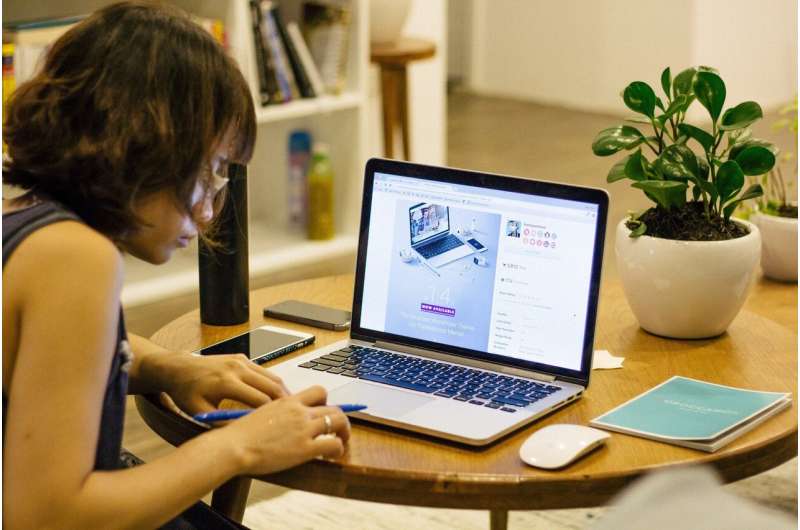Credit: Pixabay/CC0 Public Domain
New research by UniSA suggests when workers are given control over shaping their own role and responsibilities, they not only enjoy their jobs more, but may also deliver better results.
Wednesday 28 April is World Day for Safety and Health at Work, and while that may bring to mind high-viz vests and hard hats, University of South Australia (UniSA) research suggests that for many people, the most significant risks at work are psychological, not physical.
UniSA's Center for Workplace Excellence (CWeX) engages in world-leading research on the 'psychosocial safety climate' of the workplace—the policies, practices, and procedures an organization adopts that contribute to the mental and emotional wellbeing of its employees.
During the COVID-19 pandemic, psychosocial safety has come under sharper focus, as organizations and employees have been forced to adapt to new work practices, often under drastically different social circumstances.
CWeX researcher, Dr. Silvia Pignata, is an expert in psychosocial safety and organizational strategies that promote employee wellbeing. She says that while the pandemic has brought about many challenges in the workplace, it has also ushered in practices that may ultimately have long-term benefits for employees and organizations.
"With all the challenges of last year, there was this huge realization that people's wellbeing is so important, and I think people are now a lot more conscious of that," Dr. Pignata says.
"I think if organizations can move with that momentum and keep encouraging and pushing that wellbeing message, that is a very positive thing."
At the height of the pandemic in Australia, Dr. Pignata and CWeX colleagues, Dr. Amy Zadow, Professor Kurt Lushington and Professor Maureen Dollard, conducted a research study of workers in the higher education sector while many of them were working from home.
The research examined the concept of 'job crafting," exploring how the ability for an employee to shape their own work responsibilities and goals helps improve their psychosocial wellbeing.
"We're looking at how we can increase people's autonomy at work, their decision making at work, how to make work more fun and more challenging while trying to reduce the things that may hinder people within their work," Dr. Pignata says.
"And we found that being able to work from home gave people more autonomy as to how they were going to schedule their day, and this in turn gave them a new sense of ownership over their job.
"And from that, we've got some really positive data that there were high percentages of people who were actively trying to improve their work situation during COVID."
Dr. Pignata says the team's research suggests that, when people are given more autonomy over their work, they also assume more responsibility for their performance, and are more inclined to take on new challenges and push themselves to learn new things.
"So, people may have realized that they need more professional development, or choose to do some online courses, further training, further reading, even just decided to immerse themselves in digital communication platforms to learn the potential of those resources," Dr. Pignata says.
"That type of self-directed learning has taken place when people feel they have the autonomy to make those decisions, to shape their job, and then that leads to them enjoying their job more, which flows into more enjoyment in their life in general."
In addition to the apparent wellbeing benefits for the employee, Dr. Pignata says research suggests that organizations that foster a culture of job-crafting may see an uplift in productivity, as workers are happier and more engaged.
"If people are happier, if they're more satisfied in their job, then that's a positive for the individual, but it's also a positive for the organization," Dr. Pignata says.
"So, the next phase of our research is to explore the relationship between those who reported high levels of wanting to craft their own positions, to make more a positive contribution, and see if it's had an impact on the organization.
"It appears the benefits of job-crafting don't just have an impact on the individual, it can have a big impact on the team, the department, and hopefully, the organization."
More information: www.unisa.edu.au/research/cwex/projects/
Provided by University of South Australia























